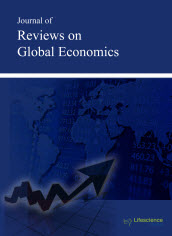The Cashless Economy in Vietnam - The Situation and Policy Implications
Abstract
A cashless economy is one where purchases and transactions are done mainly by electronic means and seldom by cash (Ejiofor and Rasaki 2012). Vietnam has now joined the Better Than Cash Alliance (Betterthancash.org 2017) and the ambitious goal of the government is in 2020, the proportion of cash on total payment means is lower than 10% (Vu 2018). Non-cash payment - a pillar of the cashless economy - has become a very popular means of payment in the world and is expanded used commonly in Vietnam. Through researching payment via mobile banking (MB), we surveyed of over 140 people in Da Nang city to find out demographic characteristics, the most used cashless payment features, as well as the ratio of cashless payment to total spending. The situation was evaluated and several important policy implications were proposed for Vietnamese government.
Downloads
Published
How to Cite
Issue
Section
License
Policy for Journals/Articles with Open Access
Authors who publish with this journal agree to the following terms:
- Authors retain copyright and grant the journal right of first publication with the work simultaneously licensed under a Creative Commons Attribution License that allows others to share the work with an acknowledgement of the work's authorship and initial publication in this journal.
- Authors are permitted and encouraged to post links to their work online (e.g., in institutional repositories or on their website) prior to and during the submission process, as it can lead to productive exchanges, as well as earlier and greater citation of published work
Policy for Journals / Manuscript with Paid Access
Authors who publish with this journal agree to the following terms:
- Publisher retain copyright .
- Authors are permitted and encouraged to post links to their work online (e.g., in institutional repositories or on their website) prior to and during the submission process, as it can lead to productive exchanges, as well as earlier and greater citation of published work .


